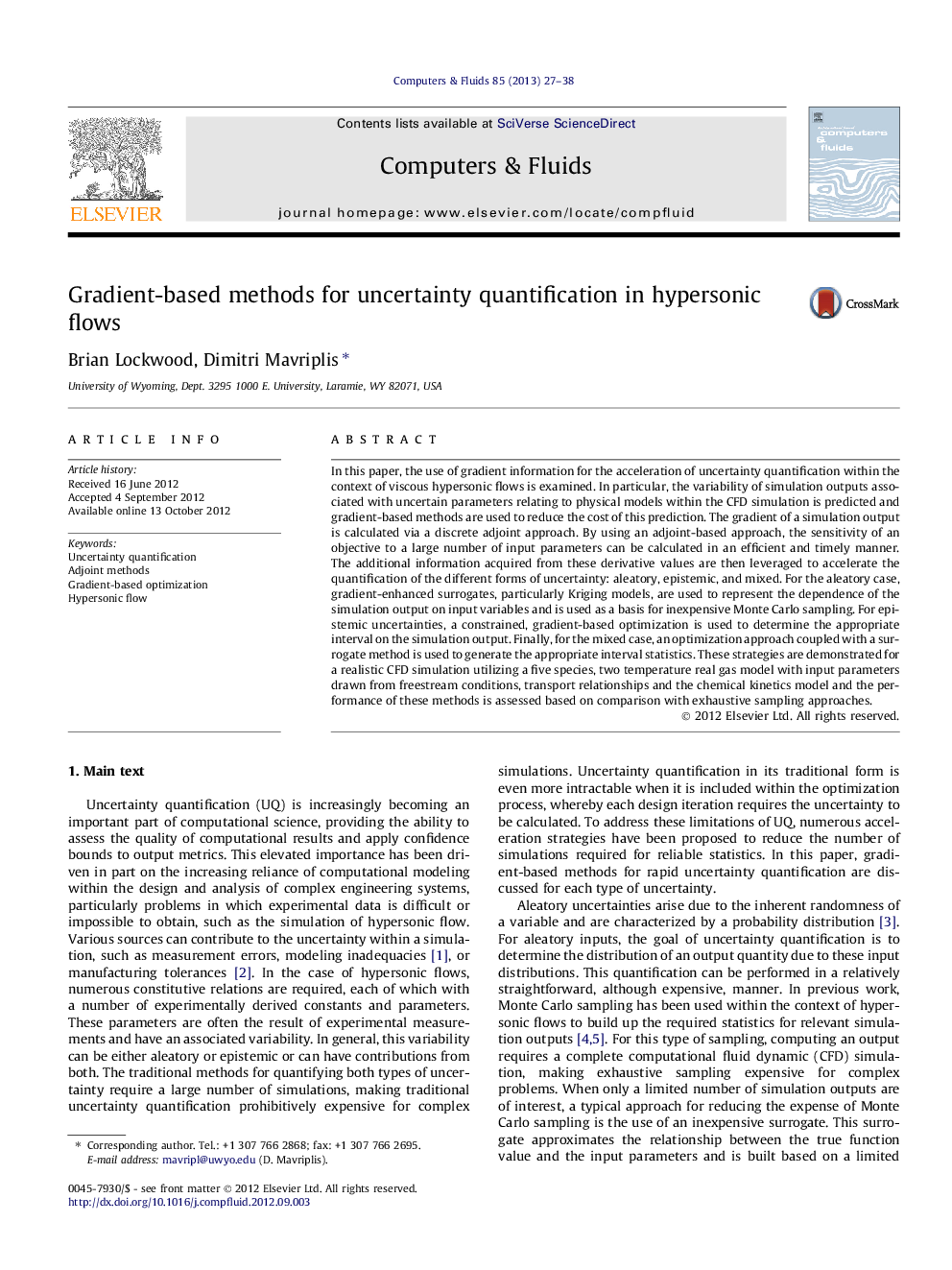| Article ID | Journal | Published Year | Pages | File Type |
|---|---|---|---|---|
| 768586 | Computers & Fluids | 2013 | 12 Pages |
In this paper, the use of gradient information for the acceleration of uncertainty quantification within the context of viscous hypersonic flows is examined. In particular, the variability of simulation outputs associated with uncertain parameters relating to physical models within the CFD simulation is predicted and gradient-based methods are used to reduce the cost of this prediction. The gradient of a simulation output is calculated via a discrete adjoint approach. By using an adjoint-based approach, the sensitivity of an objective to a large number of input parameters can be calculated in an efficient and timely manner. The additional information acquired from these derivative values are then leveraged to accelerate the quantification of the different forms of uncertainty: aleatory, epistemic, and mixed. For the aleatory case, gradient-enhanced surrogates, particularly Kriging models, are used to represent the dependence of the simulation output on input variables and is used as a basis for inexpensive Monte Carlo sampling. For epistemic uncertainties, a constrained, gradient-based optimization is used to determine the appropriate interval on the simulation output. Finally, for the mixed case, an optimization approach coupled with a surrogate method is used to generate the appropriate interval statistics. These strategies are demonstrated for a realistic CFD simulation utilizing a five species, two temperature real gas model with input parameters drawn from freestream conditions, transport relationships and the chemical kinetics model and the performance of these methods is assessed based on comparison with exhaustive sampling approaches.
